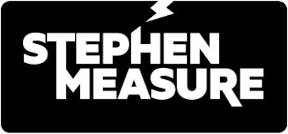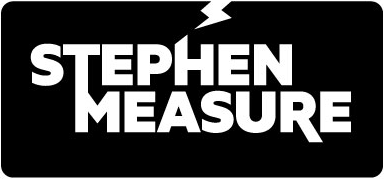The Freedom to Not Believe
Everyone must have the freedom to not believe.
If that statement seems anti-religious to you, then you aren’t thinking widely enough. To believe is not always a positive thing. Some beliefs are wrong after all. And when a belief is wrong—when we believe a belief is wrong—we must have the freedom to not believe it.
Now, if something is provable, then that is a different matter. But everything I will discuss here, all of the beliefs, all of the truth claims, all of them are unprovable. Which means that all of them are based entirely on faith.
In my last satire, “The Coming Out”, Meghan’s mother asks her the question: “What is a Catholic priest?” The question is a simple one, but if you ponder the answer, and if you consider it from both a Catholic and a non-Catholic perspective, I think you will be able to better perceive the societal regression the LGBT movement represents. And I’m not talking about morality here. Yes, the moral problems caused by that movement are concerning, but they are not as devastating as the attack on freedom the LGBT movement represents, an attack on our freedom to not believe.
“Cuius regio, eius religio” or in other words “whose realm, his religion”. Go back in time a few hundred years in Europe and you will understand the bondage expressed by that phrase. How would you like to have to believe in whatever religion your king belonged to? Are you a Protestant but your king is a Catholic? Too bad, you don’t have the right to not believe. Are you a Catholic but your king is a Protestant? Too bad, you don’t have the right to not believe. And then bloody war after bloody war, murder, atrocities of all kinds. And finally, western civilization started to learn its lesson. Enlightenment, modernity, the concept of individual religious freedom, the freedom to believe, the freedom to not believe.
And it is that freedom, the freedom to not believe, that the LGBT movement is trying to steal from us. It is a regression to the bad old days of religious belief imposed by force. “Cuius regio, eius religio.”
“But that isn’t the same at all! The LGBT movement is secular! It isn’t a religious movement!”
Ah, quite a clever tactic that is …
But let’s return to my question, “What is a Catholic priest?” Because the true answer is: It depends.
Depends? Depends on what?
It depends on who is answering the question. A Catholic priest means one thing to a non-Catholic, and quite another to a Catholic. To a Catholic, a Catholic priest isn’t simply a man who holds a position in their church. No, this is a man who has been ordained into the ministerial priesthood of God. This is a man with the authority to perform sacred rites, rites which have efficacy on the destination of the human soul. This is a man who holds an authority passed down through the centuries from Peter, and who did Peter receive it from? From Christ, from God Himself, meaning that yes there is a God, a Divine Creator, and a purpose to existence, and punishment, and reward, and truth.
Consider all those truth claims, and ask yourself this question: Do I have to believe that?
No, you don’t. You don’t have to believe any of it. You have the freedom to not believe.
And would any Catholic disagree? I would hope not. This isn’t the 16th century anymore, or the 17th. Western civilization has learned bitter lessons about the importance of individual religious freedom.
And to be clear, this freedom that everyone has to not believe extends to all religions, including my own. I am a member of the Church of Jesus Christ of Latter-day Saints. Do you have to believe the truth claims I believe in? Do you have to believe in the Book of Mormon? Do you have to believe in modern-day prophets? Do you have to believe that I, like many Latter-day Saint men, have been ordained to the priesthood? No, you don’t. You have the freedom to not believe.
“But you are talking about religions! The LGBT movement isn’t a religious movement!”
Ah, yes, quite clever. Well then, please tell me: What is a pansexual? What is a gay man? What is a transgender? Because that is the key, isn’t it? What truth claims are you embedding into those terms? And are those truth claims provable or unprovable? And do we have the freedom to not believe?
Tell me, if a state decides to forbid transgender boys who believe they are girls from competing in girls sports, does that discriminate against transgenders?
“Yes!”
But how can that be? Is it discrimination to say that boys can’t play in girls sports?
“No, of course not.”
Then I’m confused because this is a boy, which means that like all other boys, he shouldn’t be allowed to play in girls sports.
“No, this is a transgender! This is a girl!”
Ah, and so we come to the truth claim. And can you prove this boy is a girl? No, you can’t. Your declaration that this boy is a girl is not based on anything empirical. It isn’t falsifiable. It is simply a statement of self-identity.
And do we have the right to not believe in that self-identity? Do we have the freedom to not believe in that unprovable belief?
No, according to the LGBT movement, we don’t have that freedom. According to the LGBT movement, we don’t have the freedom to not believe.
Anytime there is a claim of anti-LGBT discrimination, strip away the unprovable truth claims embedded into the various sexual and gender identifies and ask yourself if that claim of discrimination makes any sense anymore. Chances are, it won’t.
Let’s consider an analogy:
If a Catholic priest walked into a Latter-day Saint church and demanded to be able to perform the baptisms there and was told no, is that discrimination? No, not unless you require the world to believe the unprovable truth claim that he actually has priesthood authority to perform baptisms.
Now let’s apply that to the LGBT movement:
If a transgender boy demands to play on the girls team and is told no, is that discrimination? No, not unless you require the world to believe the unprovable truth claim that he actually is a girl.
If a pansexual demands that her conservative private university must drop its rules against same-sex sexuality, and they say no, is that discrimination? No, not unless you require the world to believe the unprovable truth claim that her same-sex attraction actually is a core part of who she is instead of simply a wrong desire she can choose to reject.
With Catholic priests (and all other religious roles), we have learned to separate the truth claims from the label. We need to learn to do the same with all of the LGBT labels as well. Of course, that would mean the end of the LGBT movement as we know it because that’s the core of what the LGBT movement actually is: crusaders charging against the “infidels”, conversions attained by force, the destruction of any resistance. The LGBT movement would be greatly diminished if everyone exercised their freedom to not believe. That is why it is working so hard to take that freedom away.
Have you ever considered how beautiful the concept of religion is? No, I’m not trying to rehash the tired argument “Is organized religion good or bad?” What I’m talking about is the concept of religion, the idea that I can take all of my unprovable truth claims and I can package them together into a neat little bundle, and you can package your unprovable truth claims into your own neat little bundle, and despite our differences, the two of us can get along just fine. Sure, we believe different things about life, but those are all packaged into our neat little bundles, and you have your bundle, and I have mine, and maybe you’re a Catholic, and maybe I’m a Latter-day Saint, and maybe someone else is a Muslim, and maybe someone else is a Jew, and yet we can all get along civilly, respecting each other’s right to believe as we see fit, and respecting each other’s right to not believe as well.
Or maybe you don’t think the concept of religion is beautiful. Maybe you hate the idea that people are allowed to believe differently than you. Because your beliefs are right, aren’t they, and everyone else’s beliefs are wrong, aren’t they? Not just wrong but horrible, hateful! And why would we want to give people the right to believe wrong, hateful beliefs? Think of how much discrimination that can cause. Think of how much injustice, of how much bigotry!
And if you have the power, you can force your will on us all. And so we return to “Cuius regio, eius religio” don’t we? And so we regress and unlearn all the lessons we learned through so much blood and horror, hatred and death. Because those of you who want to strip other’s freedom of belief away are not really thinking this through, are you? “Whose realm, his religion” — fine words, when you are the one in charge. But why do you assume you will always be in charge? And when you’re not, what then? Will you finally understand how important it is to be free to not believe?
Imagine if the Catholic religion disappeared tomorrow, not the Catholic beliefs, the Catholic religion. In other words, the beliefs remain, but the concept of religion is gone, so what was once understood to be a religious belief is now treated like secular fact. So let’s return to the question, “What is a Catholic priest?” Remember all those unprovable truth claims listed above? Before they were all safely bundled together into that wonderful package of religion, a religion you can choose to accept, a religion you can choose to reject. But when that concept of religion is gone yet the unprovable truth claims remain … what then?
Ah, but we already know, don’t we? Because we are living through it today. Tell me: What is a pansexual? What is a gay man? What is a transgender?
Answer my question, and then tell me this: Do I have the freedom to not believe?
Related story:
• The Coming Out
Related essay:
• Freedom From Super Religion
 Included in the satire and essay collection "A Disbelief in Demigods".
Included in the satire and essay collection "A Disbelief in Demigods".


